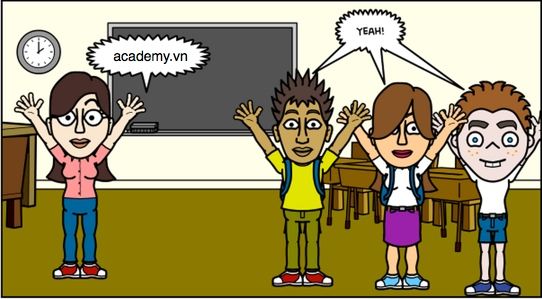I. Complete the dialogue with the words below.
shame cool wow what who how |
A. Hi! 1__________ was your weekend? B. Not bad! I played tennis on Saturday.
A. 2________! 3_________ did you play with? B. Andy and Joe. And you?
A. I had a bad cold, so I stayed in. B. What a 4_________!
A. But I had time to read two whole books. B. 5_________! 6________ were they like?
A. They were both great!
USE OF ENGLISH
II. Complete the sentences with the correct form of the words in brackets.
1. The 1950 FIFA World Cup final _________ (TAKE PLACE) in the _________ (BRAZIL) city of Rio de Janeiro, between Brazil and Uruguay.
2. After the battle, some of the soldiers _________ (HIDE) and _________ (SLEEP) in a cave in the mountains.
3. In the 2008 Olympics in Beijing, the _________ (JAMAICA) runner Usain Bolt _________ (BREAK) the world records for the 100 and 200 metres.
4. The singer Bono _________ (BEGIN) singing in the _________ (IRELAND) band U2 in 1976.
5. When I was young I _________ (WEAR) shorts all the time, so when I _________ (FALL), I always cut my knees!
READING
III. Read the text. Emile Zola
Emile Zola, the famous French writer, was born in 1840. His father was an Italian engineer and his mother was French. The family lived in the south of France for a few years, but moved to Paris after Emile's father's death, when he was only three. Zola did not pass his high school exams, so he could not study at university. Instead, he worked in several different jobs, before he decided to become a journalist and writer.
At the age of 28, he knew what he wanted to write: a set of twenty books to tell the story of two parts of the same family living in France at that time. In this way, he showed people both the good and the bad sides of change – the change which the Industrial Revolution was bringing to the country. In that way, many people compare him to Charles Dickens, the English writer, who wrote about very similar ideas.
Zola wanted to describe life as truly as possible, and did a lot of research to prepare his books. So, for example, he visited coal mines before writing a story of the miners' labour problems; or the theatres in Paris, before writing about the life of an actress.
Zola was not just a writer, but also a political journalist. He asked a lot of difficult questions about the activities of the government and the army. For that reason, the government was not very happy with him and made his life very difficult.
Choose the correct answers.
1. Zola lived most of his life in _________.
A. the south of France B. Italy C. Paris
2, When Zola left school, he __________.
A. became a writer B. went to university C. found a job
3. Zola wanted people to understand both sides of _____________.
A. his family B. the Industrial Revolution C. Charles Dickens
4. Zola spent a lot of time ___________ to help him write his novels.
A. finding out about different places B. visiting coal mines C. going to the theatre
5. Zola _________ the government.
A. was friendly with B. had problems with C. didn't worry about



1.Do
2.Study
3.having
1 ) am doing
2 ) are studying
3 ) are having
4 ) is playing
5 ) is raining
mk nghĩ tek
hok tốt